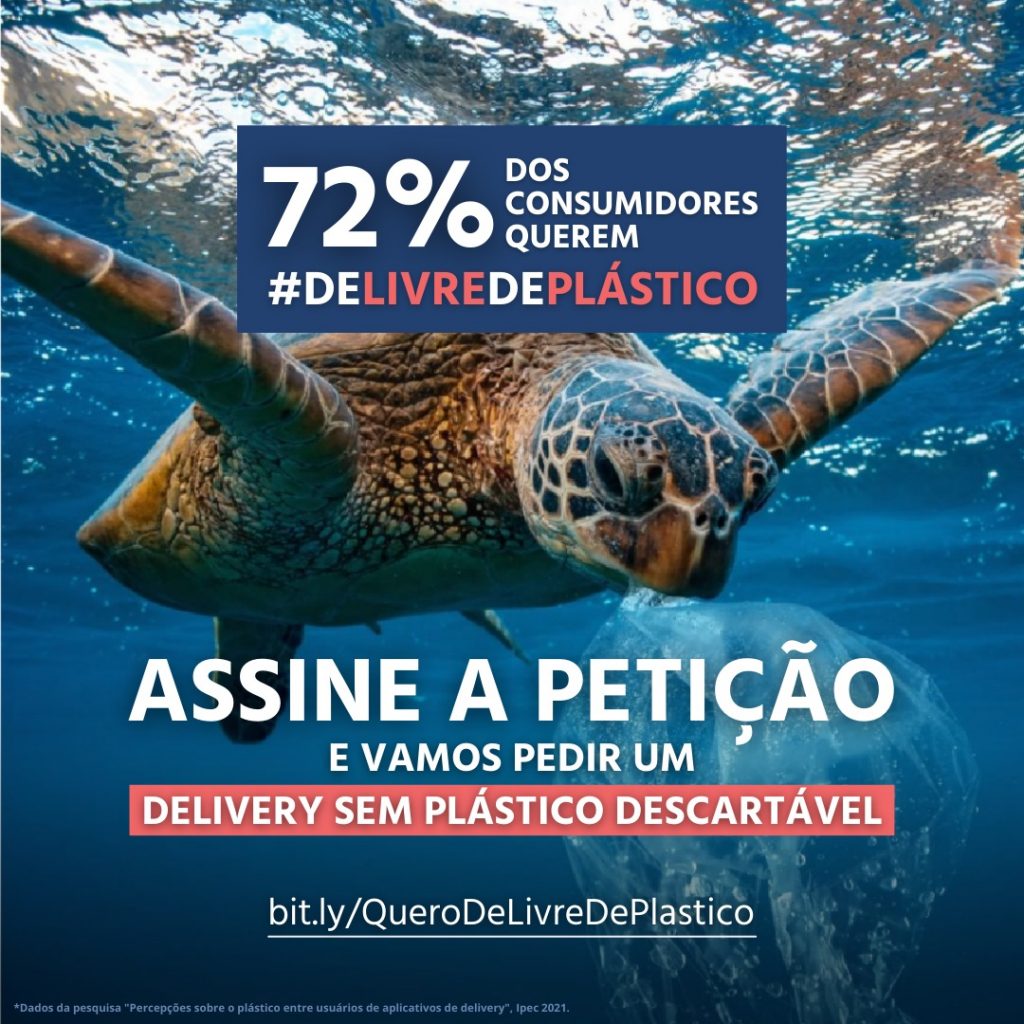
Oceana launched an online petition to promote the reduction of plastic items sent in delivery orders by applications, such as cutlery, plates, glasses, sachets, straws and stirrers. The initiative is part of the # DeLivreDePlástico campaign, led by the United Nations Environment Program (UNEP) and Oceana, the largest non-governmental organization exclusively dedicated to the protection of the oceans and sustainable fishing.
“We are giving voice to a demand from consumers, who want to receive their orders for delivery without plastic, but unfortunately in most cases they do not even have this option”, says the manager of the campaign to reduce marine pollution by plastics from Oceana, Lara Iwanicki.
According to the survey “Perceptions about plastic among users of delivery applications”, carried out by Ipec (Intelligence in Research and Consulting) in March this year, 72% of consumers want to receive orders without disposable plastic. In addition, 15% of respondents say they have already stopped asking for the service because they feel uncomfortable due to the amount of plastics sent with the food.
The coordinator of the Clean Seas campaign at UNEP, Vitor Leal Pinheiro, explains that applications are great vectors, bridging the gap between restaurants and consumers. “With the covid-19 pandemic, there was a drastic growth in the demand for meal deliveries, also increasing the volume of disposable plastic, which in Brazil is rarely recycled. Applications are responsible and must act to reverse this plastic tsunami ”, says Vitor.
Brazil, the largest producer of plastics in Latin America, contributes more than 325 thousand tons of plastic waste to the ocean, increasing a type of pollution that, in addition to the environmental impacts, also has negative consequences for the fishing activity and for the tourism sector , according to the study A Plastic-Free Ocean , published by Oceana last December.
Demand for applications
The petition demands that the iFood and UberEats apps publicly commit to reducing plastic delivery according to the following guidelines:
1. By 2023, 100% of the restaurants registered in the application provide optional items (cutlery, straws, napkins, sachets, etc.) only at the user’s request.
- By 2023, at least 50% of orders are placed and delivered without optional disposable plastic items.
- By 2025, 90% of orders are placed and delivered without optional disposable plastic items.
2. By 2025, 100% of the restaurants registered in the application deliver in returnable or plastic free bags.
- By 2023, 50% of the restaurants registered in the application deliver in returnable or plastic free bags.
3. By 2025, 100% of the restaurants registered in the application offer free disposable plastic packaging options for meal delivery.
- By 2025, 80% of orders are placed and delivered in free disposable plastic packaging.
4. By 2025, at least 30% of deliveries are made with returnable packaging.
Consumers who want to support the cause can sign the petition available at: I want MY delivery without disposable plastic
More information:
IFood, UberEats and Rappi customers are against using plastic and want changes